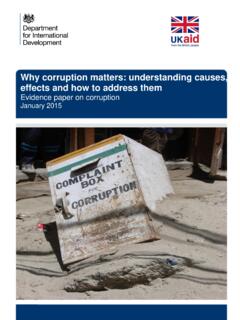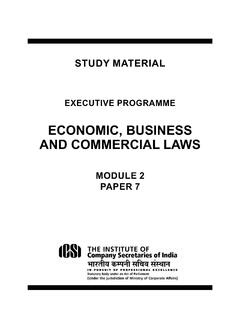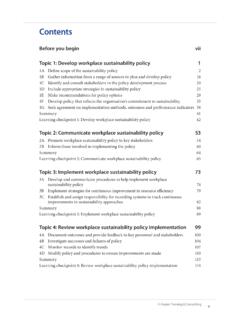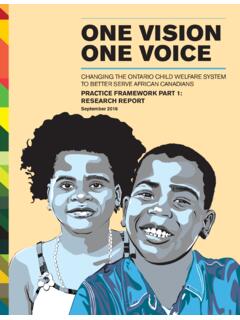Transcription of Educational Resources: An Integral Component for Effective ...
1 Research on Humanities and Social Sciences ISSN (Paper)2224-5766 ISSN (Online)2225-0484 (Online). , , 2016. Educational Resources: An Integral Component for Effective School Administration in Nigeria Usman, Yunusa Dangara. Federal Road Safety Commission (FRSC). Nassarawa Eggon Unit Command, Nasarawa State, Nigeria Abstract Education as an investment constitutes the largest enterprise in Nigeria. It is the principal instrument for academic progress, social mobilization, political survival and Effective national development of any country. Investment in education is a necessary condition for promotion of economic growth and national development . Educational institutions including schools are established and managed essentially to achieve certain stated goals and objectives.
2 There is no way the goal and objectives of an Educational institution can be achieved without putting in place certain mechanisms towards ensuring the success of such institutions. In the school system, part of the Integral pre-requisites to be put in place towards the actualization of the Educational goal and objectives requires adequate provision of resources, maximum utilization and appropriate management of education resources to avoid wastages and improve the quality of the teaching - learning process in the academic environment. This paper therefore examined the concept of school administration and education resources, classification of education resources, relevance of education resources in the school system, challenges associated with the availability and utilization of resources in the school.
3 Solutions were adduced on how to overcome the identified challenges so as to ensure Effective and efficient management of available resources in the school system. Keywords: Education, Education Resources, School Administration, School System, Teacher. Introduction The quality of every society is largely predicated on the quality of its Educational system. In the light of the apparent constraints on Educational resources their efficient utilization for maximum result need not be (2001) posit, that there has to be administration in any organization as long as an organization consists of people brought together in hierarchical set-up making use of tools, equipment, human and material resources, all in the quest of attaining the goals for which the organization is established.
4 The administration of a school institution has the responsibility for bringing together various resources and allocating them effectively to accomplish the general goals of the institution (National Teachers Institute (NTI, 2006). Nigeria, like other nations of the world has an obligation to prepare her citizens for life in a world that is characterized by rapid social, economic , political and technological changes. The relevant levels of government have been investing a substantive resource in setting up Educational institutions for this purpose (NOUN, 2010). A school is an institution designed for the attitude modification and teaching of students under the direction of teachers. It is a place or institution for teaching and learning established for the purpose of education (Musgrave,1978) Nearly all countries have systems of formal education, which is universally compulsory.)
5 A. school system is an establishment including the plant and equipment for providing education from kindergarten through high school (NOUN, 2008). The primary goal of any school system is to provide the society with the requisite manpower for development and to enhance quality of the living conditions of their products. The democratization of education in the country has led to remarkable increase in the number of schools all over the nation that almost every community in Nigeria has either a primary or secondary schools or both while some have tertiary institutions which people recognize as places of acquiring relevant knowledge. Musgrave (1978) opined that a school as institutions for teaching and learning has various goals and objectives that include the following: (i) Cognitive goals: The school is expected to produce individuals equipped with empirical knowledge and mastery of technology.
6 (ii) Moral or Value goals: The school is expected to produce citizens which are equipped with the proper values for their participation in the development of the society. (iii) Integrative goals: The school is expected to produce well adjusted individuals, skilled in inter-personal relationship. (v) Social mobility goals: The school is expected to promote upward mobility and social betterment of the individual. The social mobility goals are capable of overcoming the disadvantages of poverty, social, cultural and ethnic backgrounds. Every Educational system at every level depends heavily on teachers for the execution of its programmes. Maintaining and improving Educational standards is only possible through teachers.
7 A teacher is a 27. Research on Humanities and Social Sciences ISSN (Paper)2224-5766 ISSN (Online)2225-0484 (Online). , , 2016. person who teaches or instructs and provide education for learners thereby helping them to acquire new knowledge and making them useful to themselves and the society. The teacher is a crucial Component of any Educational system because no organized education can take place without the teachers. The teachers implement Educational policies, the curriculum and play significant roles in the attainment of the objectives of any Educational system. A teachers role may vary among cultures, they may provide instruction in literacy and numeracy, craftsmanship or vocational training, arts, religion and civic community roles.
8 These roles make a teacher the greatest aid to learning and the most indispensible entity in the school which should be comprehensively trained and supported to flawlessly and proficiently perform the teaching duty. The utilization of teachers to achieve maximum result is dependent on the availability and accessibility of school materials. To aid the utilization of teachers, they should be availed the opportunity for in-service training for career improvement and development . Such in-service training will enable teachers renew their knowledge for effectiveness on their jobs and enable teachers to be efficient and be properly utilized in the school system to fast tract the achievement of the Educational Okendu (2012) assert that idea that human and material resources are to be assembled together by Educational administration, within the school system for Effective teaching and learning cannot be over emphasized.
9 It is supported on this ground that, in secondary schools, the principals play the role of administrators and that of supervisors, even instructors and they also participate in teaching activities when necessary. All staff, teaching and non-teaching should be made to realize their responsibilities of improving and developing instruction in the school system. This is possible through harnessing the available resources allocated to the schools to realize the goals of education. All materials and non-material factors that are necessary and are contributive to the attainment of goals in any institution are regarded as resources. The human Component of resources interacts with certain facilities and equipment at certain time to bring about production of output.
10 The quality and quantity of this output are to a greater extent dependent on the quality and quantity of resource input and the manner of processing. By implication therefore input and output are significantly responsive to administration. Administrators of institutions have role to play in ensuring effectiveness and efficiency within and outside the institution, not only in the procurement or acquisition of resources but also in their organization, coordination, control and maintenance. The concept of scarce resources is an economic one that attempts to rationalize spending in order to avoid waste. Educational wastages imply the inefficient utilization of education resources to achieve the Educational goals.















